Robin Helweg-Larsen's Blog, page 59
June 15, 2022
Calling the Poem: 1. ‘Invocation’
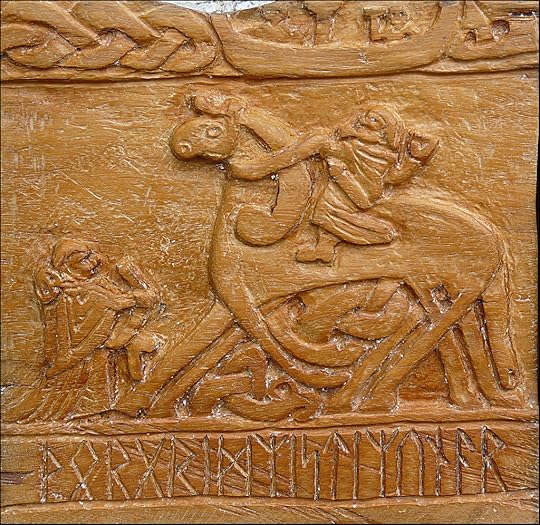
O Odin,
Living outside me or within,
Share your mead of poetry you earned in night’s delight,
Spare me from the mead you shitted out in flight and fright.
By Thought and Memory, I swear
A poem needs your care,
For poems… magic poems… are nothing,
and come from your nowhere…
A poem comes in flurries:
A phrase that catches, sticks,
A rhyme that matches
With some thought that dog-worries,
And a verse that clicks.
*****
Just to be clear, I’m no more a believer in the Norse gods than I am in Yoruba, Hindu or Christian deities. Also, I’m not a white nationalist. But mythology has a couple of uses for me: pure enjoyment of the tangled tales; a way of looking at historical mindsets; and a tool for trying to communicate with the unconscious, i.e. to let the creative unconscious funnel ideas and images to the conscious mind.
What I do believe is that invoking the Muse, or a god, is a way of telling your unconscious that you are receptive to its comments… it is a fishing expedition, and you never know what you’re going to get. But I believe it is a system that works (sometimes), and I don’t practise another. (Various drugs are alleged to get results, too.)
So a few years ago I set out to describe the process that I follow to try to bring poetry to me. The result was a series of 15 poems, published by Snakeskin as an e-chapbook in January 2017. It was available as a free download from Snakeskin No. 236, and it should be again, when the Snakeskin archives are again operational. I named it ‘Calling the Poem’.
‘Calling the Poem’ starts by invoking the Muse – male, female, human, animal, I think the Muse can be however you choose to imagine it. But the Muse should be a dream-image, for the Muse, the unconscious, is as likely to communicate through dream as anywhere. Odin is a good figure, with his ravens of Thought and Memory who give him the news of the world, his eight-legged horse Sleipnir who can carry him through all the worlds, his ability to shapeshift and prophesy, the sacrifices he made to obtain wisdom such as gouging out an eye to put in Mimir’s well, and of course the mead of poetry that he stole and disburses as he feels.
And so the first poem – somewhat rough-hewn, semi-formal – is the invocation addressed to Odin.
Photo: “Odin on Sleipnir” by Hornbeam Arts is licensed under CC BY-NC 2.0.
June 13, 2022
Semi-formal poem: ‘Gulf Airport’

The men in suits, the men in African robes,
The men in jeans and sports shirts,
The local men in headdresses and thobes,
None look out of place.
The women in abayas, saris, or long skirts,
The women in slacks and blouses
(Some with, some without headscarves, depends on race)
None look out of place.
But the anonymous silent women faceless in veils,
And the noisy drunk in-your-face blatant females
In shorts that barely cover their barelys,
They look alien even in a Gulf airport.
The extremes have to be more extreme here to stand out–
Either private as houses,
Or provocative past any “careless”–
But it can be done, with thought.
*****
I wish I had been able to find a photo showing the wonderful range of clothing styles that you encounter in the truly global airports of the Middle East, where travellers on the long-haul carriers change planes en route to Sydney, Tokyo, Mumbai, Johannesburg, Paris, Houston… Your clothing and behaviour has to be extremely extreme if it is to stand out.
This poem was written in Bahrain’s Manama Airport in 2015, published in Snakeskin a year later. It’s not really “formal” verse, is it? 
“3am, Dubai Airport” by joiseyshowaa is licensed under CC BY-SA 2.0.
June 11, 2022
Short poem: ‘First Contact’
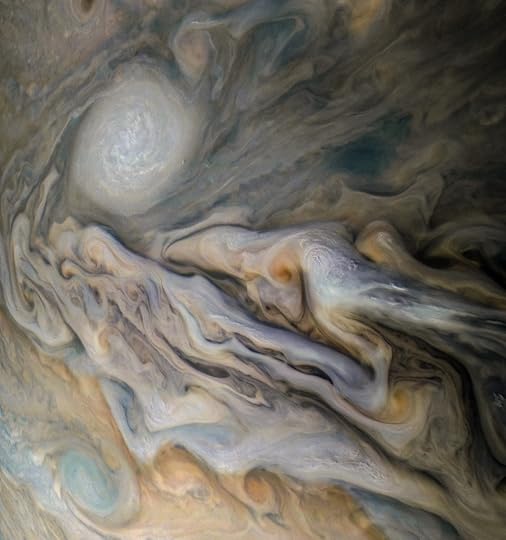
And when we leave this planet, even leave
corporeal necessity behind,
launch in new realms of space, new states of matter,
encapsuled and encoded, searching blind,
who will we find, as we have always found,
those others there before us, unconfined?
How will we meet them, how will we relate,
them settled formlessly, we coming late?
Perhaps I owe an explanation to non-readers of science fiction. The premise of the poem is that we humans will continue to tinker with not just our bodies but our DNA, as we have always experimented with everything. We will produce ever more bizarre manifestations as posthumans, especially useful in off-planet environments (I recommend the short stories of John Varley), ultimately finding ways to exist with intelligence and control without being tied to physical bodies. (Try Vernor Vinge.) But as always, wherever and however we voyage in exploration, we will always find someone (some thing) is there before us. And then there will be all the usual situations that occur with first contact… confusion, lack of communication, miscommunication, trust and distrust, treachery, violence, accommodation, mutual benefit, all the things that social species engage in.
Appropriately this short poem was first published in Bewildering Stories (thanks, Don Webb!), an excellent weekly magazine of speculative stories both short and serialized, and speculative poetry and art. This eight-line poem is structurally pretty basic: it’s in iambic pentameter with the second, fourth and sixth lines rhyming and with a final couplet.
“Jupiter – PJ16-13” by Kevin M. Gill is licensed under CC BY 2.0.
June 8, 2022
Resources: Salt Publishing returns!
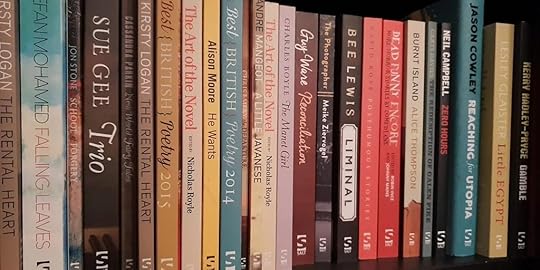
Begun in 1999 as a wide-ranging British literary publisher, Salt ran into difficulties with a declining market for poetry. In 2013 they posted in their blog that “after thirteen years and over 400 poetry collections, many by debut authors,” they were going to stop publishing poetry by individual poets and instead limit themselves to anthologies. For those who want to see how depressingly small the poetry market could be, here is a Guardian article on it and Salt from 2013.
By 2018 it looked as though Salt might be dissolving entirely, despite the wide praise and support they had from the literary community; and then came Covid and the halt to library and bookstore gatherings. Life got miserable for everyone (except, of course, Boris Johnson).
Happily, Salt hung on, focusing on fiction, and has now strengthened enough to once again be accepting submissions of poetry manuscripts. They may be very much a contemporary publisher, but can’t be completely averse to formal verse if their author list includes Christina Rossetti and Emily Brontë. From their Submissions page:
We are happy to consider full-length poetry collections by Welsh, Scottish, Irish or English poets of circa 64 pages. It will help if poets live in the British Isles to participate in publicity and promotion.
Please send your complete collection along with your magazine publication history and a biographical note.
Their blog even has a useful Guide to Poetry Submissions. Salt, distributed by Penguin Random House and with e-book distribution by Faber Factory, is a top-class independent publisher in the UK. It’s good to see them looking fully active again.
June 6, 2022
Review: ‘By Heart – 101 poems to remember’, ed. Ted Hughes
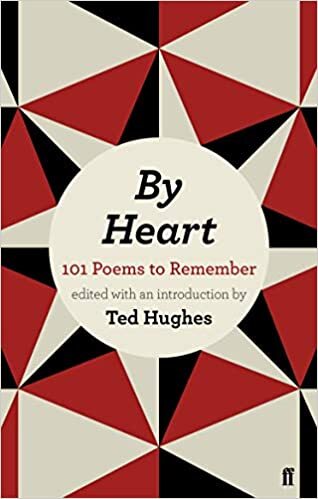
This book’s theme is the memorisation of poems, and there are things I like and things I don’t like about both Ted Hughes’ introduction to the subject and the 101 poems that he has chosen.
First, the introduction. I like that it encourages people to learn poems by heart. But although the book’s title is ‘By Heart‘, Hughes instead teaches ‘by head’. His method is extremely cerebral, using the kind of image-association-chain taught by neuro-linguisitic program consultants to help you remember the names of business associates and clients. Hughes would have you construct a Cumberbatch-Sherlock Holmes ‘mind palace’. Taking Hopkins’ poem ‘Inversnaid’ as an example, Hughes explains that the opening lines
This darksome burn, horseback brown,
His rollrock highroad roaring down,
can be dealt with as follows:
For ‘peaty burn’ it might be enough simply to imagine, like a frame in a colour film, a dark torrential mountain stream coming down among boulders. But to make sure it is ‘burn’ and not ‘stream’ that you remember, it might be better to imagine the stream actually burning, sending up flames and smoke: a cascade of dark fire, scorching the banks. The next item, ‘brown horse’, now has to be connected to the burning stream. The most obvious short-cut is to put the horse in the torrent of fire, trying to scramble out – possibly with its mane in flames.
He then goes on to connect it to the horse causing an avalanche (rollrock highroad) which comes down on a lion (roaring down), and so on.
My difficulty with all this is that the images he is creating are simply not what the poem is about. When Hopkins writes ‘burn’ meaning stream, it’s not appropriate to set it on fire. Of course the poem summons up images, and they are useful for memorizing… but for godssake, why not think of it as a Scottish stream rather than setting it on fire? The burn is brown and in spate, and rocks are rolling down it and it makes a roaring noise – and that is the picture you can hold in your head as you recite Hopkins’ lovely rich words, without having to involve fires, animals and avalanches.
It seems to me that Hughes is in danger of losing the beauty of the actual poem by going through his ‘mind palace’ activities. He appears to be reducing the memorisation of poetry to a party trick, performed at the expense of the poem itself. If he didn’t love the poem for its actual imagery, what did he love it for? When he memorised a poem, did he check it off and then forget it? Wouldn’t all the peripheral imagery have gotten in the way when he tried to recite the poem a few decades later? Better and safer to my mind to stay with the essential images and the richness of the language, rather than setting fire to a stream because the poet uses the word ‘burn’.
And this leads in to my thoughts about the selection of the 101 poems to be learnt by heart. Auden, Blake, Dickinson, Eliot, Frost, Wordsworth and Yeats each get at least five poems, and Shakespeare over a dozen. The less-represented poets are a wider mix, from John Betjeman to Elizabeth Bishop, Elizabeth Barrett Browning, Lewis Carroll… The poems themselves are interesting, and many of them are perfect for memorising, so it is a worthwhile read.
But I don’t think it appropriate to waste five or six pages on the 130 or 170 lines of Blake’s ‘Auguries of Innocence’ or Wordsworth’s ‘Tintern Abbey’. Perhaps Ted Hughes learnt those two along with Blake’s ‘The Tyger’ and Wordsworth’s ‘Upon Westminster Bridge’, but the latter two are far more suitable than the former for a book that is meant to encourage others to achieve memorisation.
Again, most of the poems are good for learning by heart, but too many of them have none of the qualities that make it easy to learn poetry in English: rhyme, metre, alliteration, wordplay. William Empson’s translation of the Japanese poem ‘From the Small Bird to the Big’ is interesting, but inappropriate for this book. The same goes for Pound’s ‘The Return’ and Eliot’s ‘Marina’ – inappropriate because they are missing the music, the song-like qualities, that make memorisation easy. Easy, that is, if you are learning by heart, as the book’s title requires.
June 4, 2022
Potcake Poet’s Choice: Richard Fleming, ‘His Room’

It took five minutes, more or less,
to fill, with what he left behind,
a cardboard box and to compress
into its space, his life, unsigned
in much the way some paintings are,
then stash it in the waiting car.
In those five minutes, I remained
there in the small, vacated room,
while the red-faced landlord explained
a small arrears. Would I assume
responsibility and pay?
My conscience made me easy prey.
*****
Richard Fleming writes: “Growing old, I find myself preoccupied with life’s endings: a balancing of accounts, so to speak, and the inevitable feelings of regret and remorse for things done badly or left undone. Deliberations of that sort inspired this piece of verse, as did the lonely, final years of renowned Guernsey-born novelist, G B Edwards, the demise of an old friend in similar straitened circumstances and, of course, Larkin’s famous poem, Mr Bleaney. I think ‘His Room’ manages, despite its brevity, to encapsulate the ‘whimper’ with which some lives end. A simple rhyme scheme seems best suited to the poem’s mundane subject matter.”
Richard Fleming is an Irish-born poet currently living in Guernsey, a small island midway between Britain and France. His work has appeared in various magazines, most recently Snakeskin, Bewildering Stories, Lighten Up Online, the Taj Mahal Review and the latest Potcake Chapbook ‘Lost Love’, and has been broadcast on BBC radio. He has performed at several literary festivals and his latest collection of verse, Stone Witness, features the titular poem commissioned by the BBC for National Poetry Day. He writes in various genres and can be found at www.redhandwriter.blogspot.com or Facebook https://www.facebook.com/richard.fleming.92102564/
Photo: “Emptied cardboard box” by Creativity103 is licensed under CC BY 2.0.
June 1, 2022
Potcake Poet’s Choice: Brooke Clark, ‘At a Child’s Funeral’

Today we give to the earth the body of our little girl,
our little darling; we’ll never watch her twirl
around the house again in her impenetrable games
or listen as she wheedles and whines our names
in that annoying tone we tried to break her of before;
now we’d give anything to hear it once more.
She’ll find whatever waits for all of us when this life ends–
eternal silence or the souls of friends–
while, left behind, we bow our heads to see what prayers can do.
Lie lightly, earth–she stepped so lightly on you.
*****
Brooke Clark writes: “‘At A Child’s Funeral‘ is loosely adapted from one of Martial’s epigrams. This poem interested me because it’s quite a departure from Martial’s usual satirical style. In it, he attempts to convey a genuinely tender emotion, which is well outside his usual register of scorn verging on disgust. That made it a departure for me too, and I struggled to get the tone right — emotional without being mawkish. I hope I succeeded! In terms of form, it’s in rhyme, and uses alternating 7-stress and 5-stress lines in imitation of Martial’s elegiac couplets.”
Brooke Clark is the author of the poetry collection Urbanities, the editor of the epigrams website The Asses of Parnassus and the book reviews editor at Able Muse. Twitter: @thatbrookeclark
Photo: “Filipino child funeral” by Ted Abbott is licensed under CC BY-NC-ND 2.0.
May 30, 2022
Potcake Poet’s Choice: Michael R. Burch, ‘Styx’

Black waters,
deep and dark and still…
all men have passed this way,
or will.
*****
Michael R. Burch writes: “This original epigram, written in my teens, returns more than 6,000 results. I started writing poetry around age 13 and decided that I wanted to challenge the immortals around age 15. I was always very ambitious about my writing. When I couldn’t out-write Keats and Shelley at age 15, I destroyed everything I had written in a fit of pique. I was able to reconstruct some of the poems from memory, but not all. I still miss a few of the poems that seemed promising which have not cooperated with being resurrected.”
Michael R. Burch is an American poet who lives in Nashville, Tennessee with his wife Beth and two outrageously spoiled puppies. Burch’s poems, translations, essays, articles, reviews, short stories, epigrams, quotes, puns, jokes and letters have appeared more than 7,000 times in publications which include TIME, USA Today, The Hindu, BBC Radio 3, CNN.com, Daily Kos, The Washington Post and hundreds of literary journals, websites and blogs. Burch is also the founder and editor-in-chief of The HyperTexts, a former columnist for the Nashville City Paper, and, according to Google’s rankings, a relevant online publisher of poems about the Holocaust, Hiroshima, the Trail of Tears, Darfur, Gaza and the Palestinian Nakba. Burch’s poetry has been taught in high schools and universities, translated into fifteen languages, incorporated into three plays and two operas, set to music by twenty composers, recited or otherwise employed in more than forty YouTube videos, and used to provide book titles to two other authors. To read the best poems of Mike Burch in his own opinion, with his comments, please click here: Michael R. Burch Best Poems.
Photo: “Styx” by wilding.andrew is licensed under CC BY-NC-ND 2.0.
May 28, 2022
Review: A.E. Stallings, ‘Like’
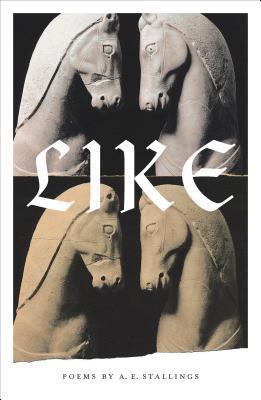
‘Like’ is the fourth volume of poetry from A.E. Stallings, the best poet that I know of who is writing in English today. The themes in ‘Like’ are the same as in her earlier collections: American childhood, Greek adulthood, children, memory, local wildlife, Greek mythology… and concern for the abused, whether women in the patriarchy or refugees in the Mediterranean. There is a difference of organization, though: instead of four or five different sections, ‘Like’ lumps all the poems together and arranges them alphabetically by title; the result is a smooth, wide-ranging read.
Stallings has a superb mastery of form, and plays endless tricks with it. Start on ‘Battle of Plataea: Aftermath’ and the apparent prose in 11 lines when read alertly turns out to be a rhymed sonnet in iambic pentameter. Or take the eponymous ‘Like, the Sestina’ which uses the word “like” as the rhyme for every one of the requisite 39 lines plus 3 mid-line rhymes (with such variations as “unlike”, “dislike”, “look-alike”). See how the most substantial poem, ‘Lost and Found’, carries its rambling dream-and-memory dissertation on for 36 stanzas of ottava rima in iambic pentameter, whereas the shorter and more time-sensitive ‘Swallows’ uses 6 stanzas in iambic tetrameter. Her ‘Refugee Fugue’ attacks the unmanageable and unimaginable horrors of the desperate and drowned through a blues poem, a host of epigrams, a found poem – an appropriately confused assemblage of forms for a situation not amenable to coherent resolution.
But forget the technicalities! The beauty is in the easy music of her verse, the casual wordplay as with the doorbell that
Portended importunity from Porlock,
the throwaway etymological observations as of nighttime thoughts:
To consider means to contemplate the stars,
the poem on a ‘Pencil’ that ends
And Time the other implement
That sharpens and grows shorter,
the playfulness of ‘Night Thoughts’ that begins
Night thoughts are not like bats
and then goes on to describe the flight of bats in extended lyrical detail, before finally ending with how night thoughts are different…
And always the underlying awareness of thousands of years of history, showing through in the description of sky, contemporary but ancient, as
the contrailed palimpsest of blue.
And that leads me to my only regrets about Stallings’ verse: too much Greek literature with which I’m barely familiar. I’m not saying it’s a failing on her part, it’s merely a regret on my part that I can’t keep up. Although I would love to come across work by her with Norse themes…
But I will settle for what she offers: a very wide range. She can be very succinct as with ‘Paradox’:
Of the ones that happened to die, the little ones and the old,
Of hypothermia, or drowning, all died of cold.
Equally, she can be extensive and thorough in her exploration of a theme as with ‘Lost and Found’, where she is wandering through a dream of mountainous moonscapes, landfill landscapes, of things lost – toys, gloves, loves, baby teeth, time, opportunities, keys, coins – led by Mnemosyne, Memory herself, the mother of all the muses. The smooth formal stanzas of ottava rima, maintained steadily for 288 lines, provide the same meditative state as the 250 lines of Matthew Arnold’s ‘Scholar Gypsy’ or Edward FitzGerald’s even longer ‘Rubaiyyat of Omar Khayyam’.
My personal favorite in ‘Like‘ is her semi-formal ‘Crow, Gentleman’ (whose title I am guessing was changed from the original ‘Gentleman Crow’ to prevent it from coming between two poems in ‘Like’ addressed to her daughter). It begins:
Pacing to and fro
Along the autumn shore
Among the wrack and reek
With your arms clasped behind your back
And sporting your grey frock coat
Trimmed in black
And your black hat and your lean long-legged stride,
Up and down the strand perusing
The headlines of the tide:
and ends:
Life is a joke you crack,
Wry and amusing,
And death a dainty snack.
I find Stallings’ work altogether delightful: by turns sardonic, detached, passionate, compassionate, always observing carefully, always expressing wittily, always in masterful control of rhythm and rhyme. I repeat: I don’t know of a better poet writing in English today.
May 25, 2022
Sonnet: ‘Zombies and Wolves’

Women I’ve failed or wronged or left behind
Approach my thoughts like zombies for the kill;
I’ve literary walled defences – still,
Given the chance, they’ll eat my brains, my mind.
Through forest, orchard, farmyard in decay,
A shadow of a wolf slips greyly in,
My thoughts of death, grim, wasted, ill, rib-thin,
Tracking my weak resolve, hungry to slay.
Mountaintops blown apart, forests clear-cut,
Where’s there to hide? Nature doesn’t exist;
Her landscapes crushed in patriarchal fist.
This former farmland hides my ruined hut.
Impotent, I still write, thus giving birth
To future wolves and zombies of the earth.
What on earth triggered this sonnet 15 years ago? I have no idea. What’s it really about? Well, it seems the volta between the octave and the sestet moves the narrative from purely personal regrets to our current planetary destruction. More than that, I can’t say. Your suggestions are welcome!
Anyway, the poem was published in that now-defunct British beacon of formal verse, Candelabrum.
Photo: “Wolves in Action” by iam_photography is licensed under CC BY-NC-SA 2.0.Copy text



